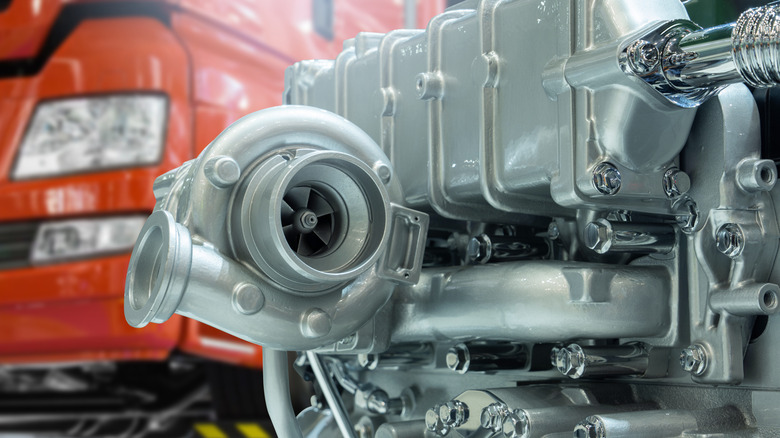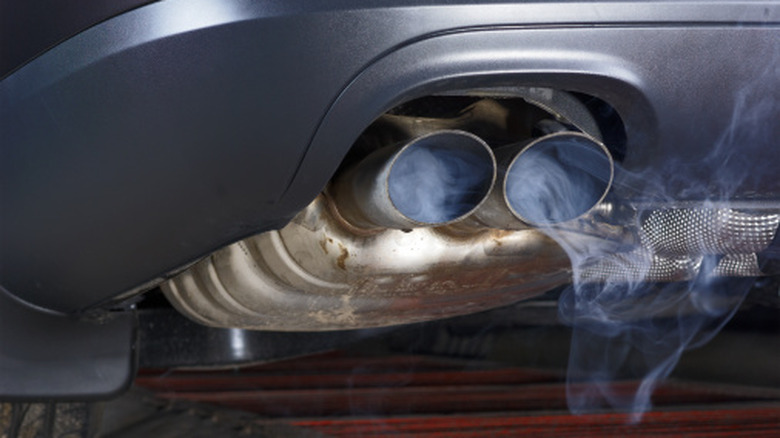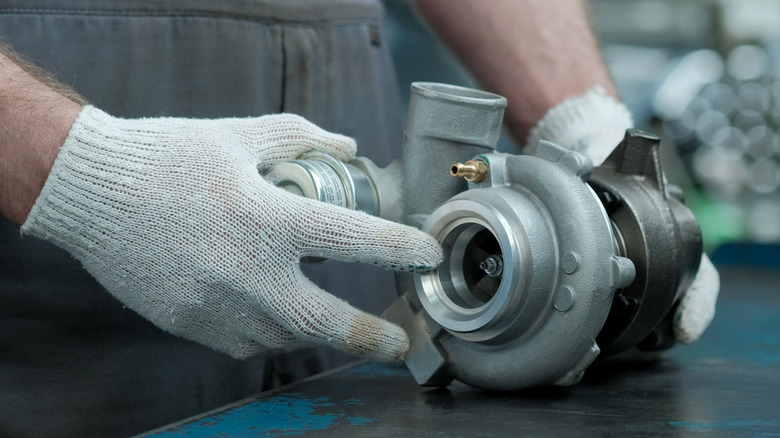How Do You Know If Your Turbo Is Burning Oil? (And What Should You Do About It?)
A turbocharged engine is a solid bet for performance enthusiasts. Since their advent in the mid-1960s, these engines have evolved to offer massive power and quicker acceleration (all without the need for bigger engines). By forcing more oxygen-rich air into the combustion chamber, the turbo helps the engine to burn fuel more effectively. This, in turn, translates to a noticeable engine power output and improved efficiency. In addition to enhanced performance, turbocharged engines are reliable. In fact, with proper care, you can expect turbocharged engines to last a very long time.
On paper, that could be around 150,000 miles, but that's not to say turbochargers are immune to problems. These engines usually operate under extreme pressure and heat. Most components will undergo wear and tear, creating turbo issues like reduced acceleration, and most commonly, excessive oil burn. That said, if you notice a puff of blue smoke coming from your exhaust, or your engine tends to chug oil, that's a sign that your turbo might be burning oil.
Initially, it might look like a minor convenience, but that's an early red flag that something has gone wrong with multiple spots, like internal seals, piston rings, or bearings. Ignoring this could lead to higher emissions, reduced efficiency, and long-term engine damage. With that in mind, if you see any of these irregularities, hustle to your nearest garage before more damage develops.
Early warning signs that your turbo might be burning oil
It's no secret that oil absorbs excess heat and lubricates your turbo's internal moving parts. So, it makes sense that turbocharged engines will generally consume more oil than naturally aspirated gas engines. However, if you notice that you're topping off your car's oil more often than usual, you'll want to have the issue checked right away. While this might be a sign that your diesel engine is failing, the problem is more likely to be related to your turbo, especially if there's a noticeable drop in engine performance.
A strong, acrid smell of burning oil that's followed by a blue smoke is another clear indication of burning oil. This mainly happens when oil slips out of damaged bearings or worn-out turbo seals and lands onto a hot exhaust system, where it burns and exits as smoke. If left unchecked, the leak will probably lower the oil level, potentially resulting in overheating, which can damage your engine in the worst-case scenario.
Sometimes, a warning light might appear on the dashboard if your turbo is burning oil. Other times, an oil pressure warning light might appear. When this happens, visit a mechanic to top up or change your oil. Turbocharged engines are known for their quick acceleration power, so if your car starts to feel sluggish or takes a long time to respond when you hit the gas, you'll want to get it diagnosed by a mechanic.
How to deal with a turbo that is burning oil
If you suspect your turbo is burning oil, the best thing to do is visit a pro. They can diagnose the issue to know whether the turbocharger leaks oil internally or is damaged. If some internal parts (bearing and turbo seals) are damaged, replacing them will remedy the issue without requiring a complete turbo replacement. However, a full turbo replacement or rebuild might sometimes be necessary depending on the severity of the damage.
You'll also want to clean the oil drainage system. Inspect the oil return line to ensure it's free of clogs and properly routed. A blocked or improperly aligned drain will cause the oil to back up, which will lead to leaks. Also, be sure to check the positive crankcase ventilation (PCV) system. A faulty PCV valve sometimes creates excess crankcase pressure, forcing oil into your turbocharger. Clean the lines and replace damaged valves to maintain proper pressure balance.
It's also best to avoid habits that might destroy your turbocharged engine. Skipping oil changes, using low-quality oil, and accelerating rapidly when the engine is cold might put unnecessary stress on the turbo. This will cause premature wear and tear on some of your turbo's components. Even worse, it can completely damage your turbo system, which might lead to a complete turbo rebuild or replacement.


